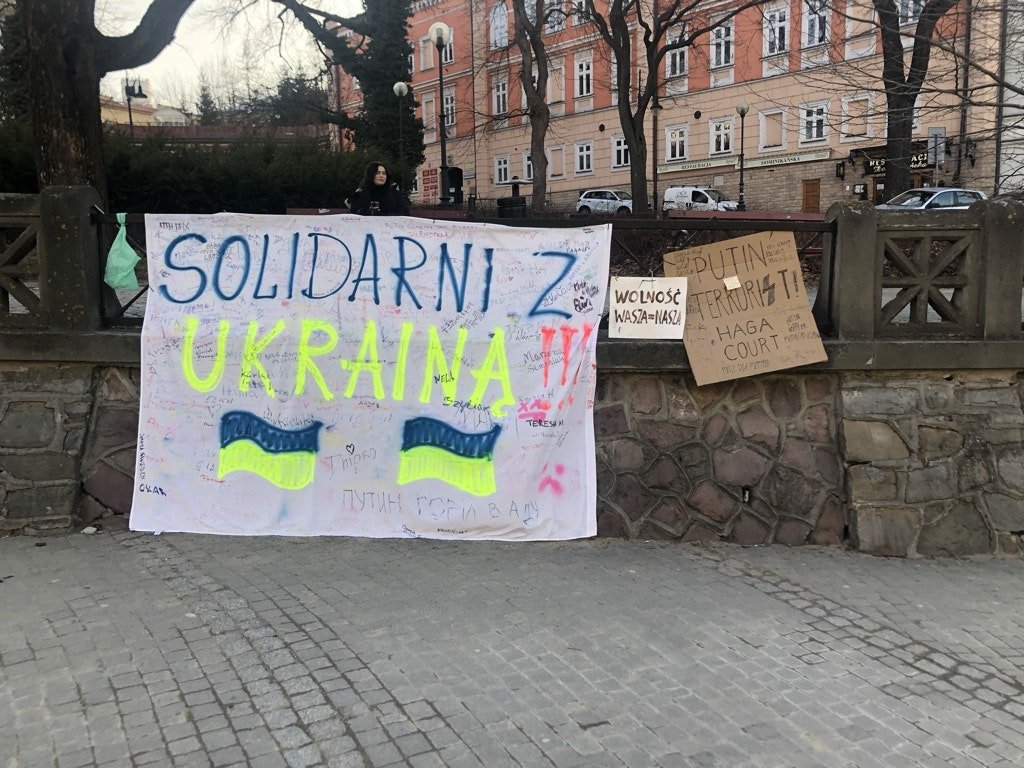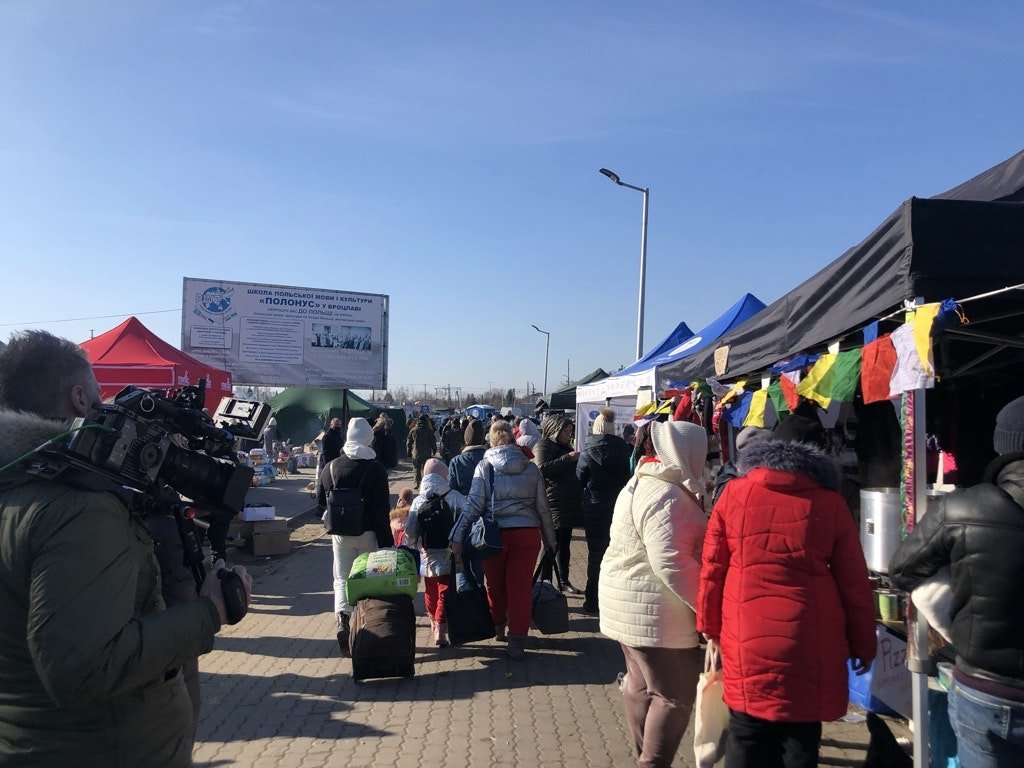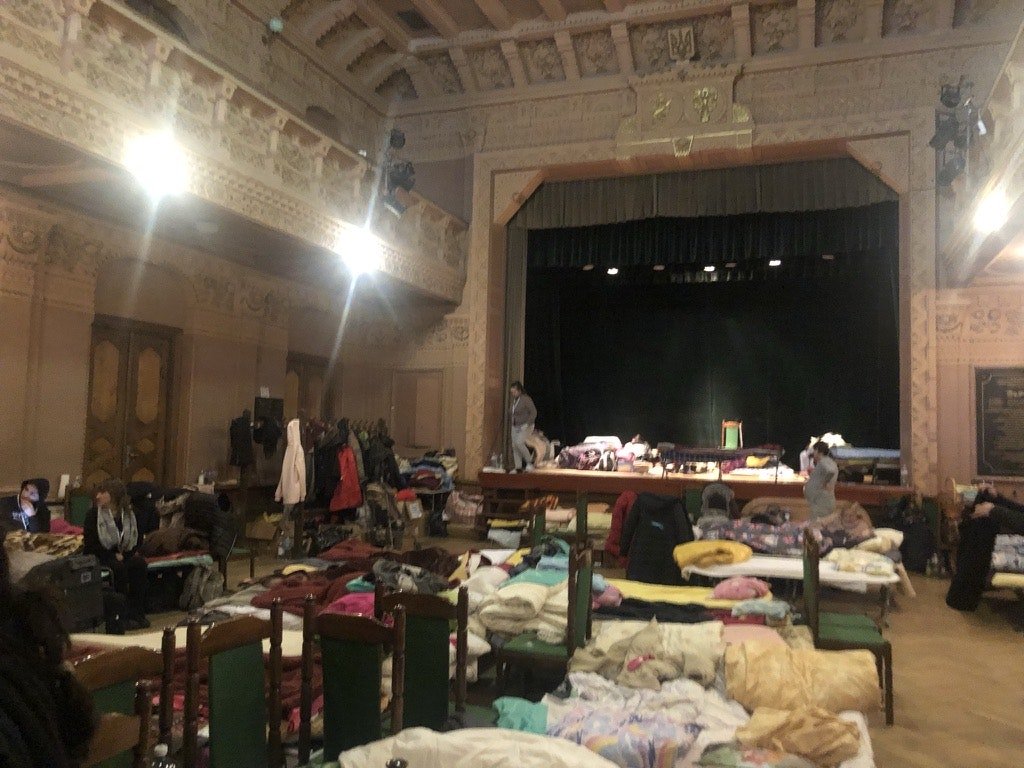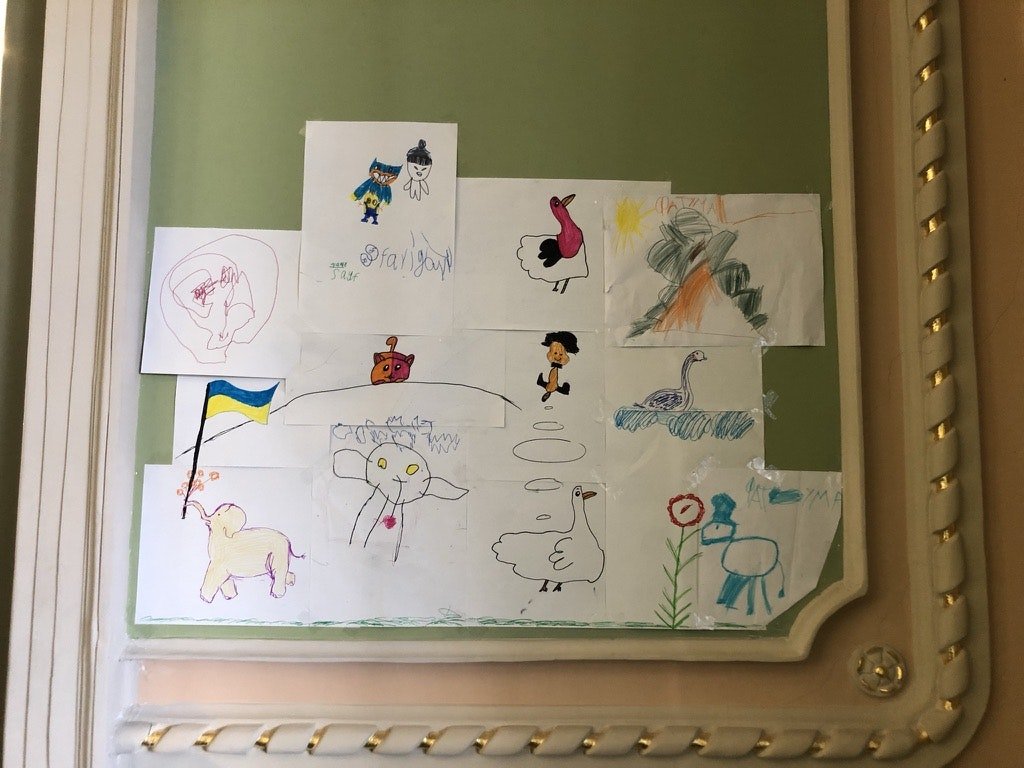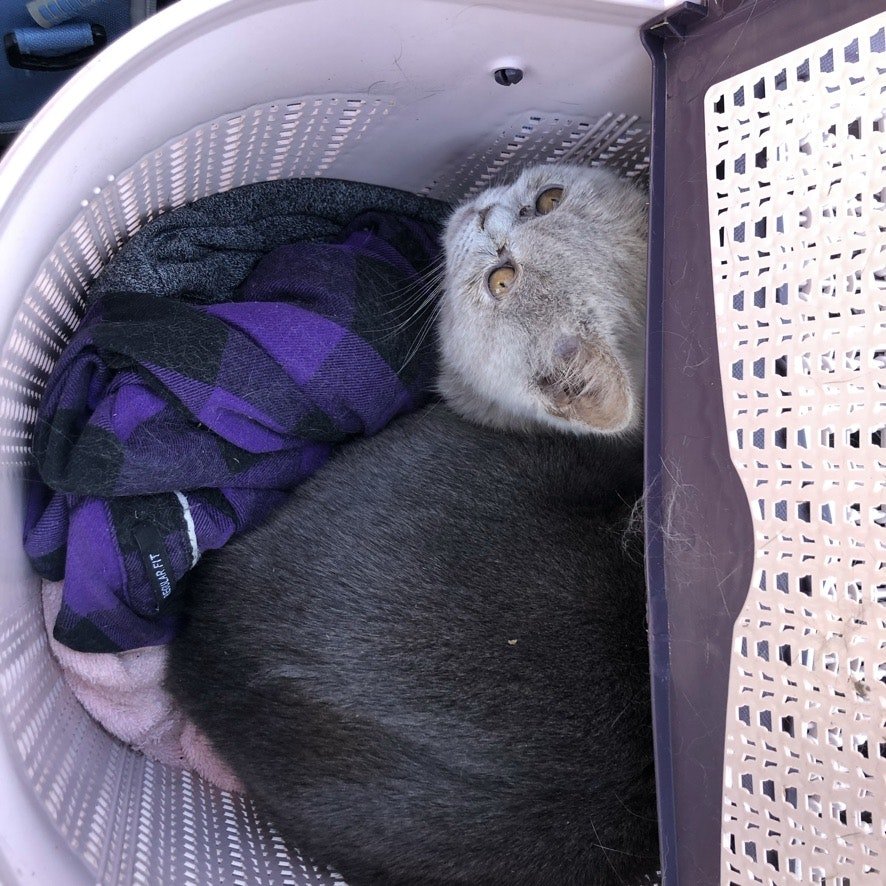days one and two
Some rambling thoughts
Originally published in Thoughts from the Border
I have now spent two full days on the Polish/Ukrainian border. To be honest, I can’t remember two more tiring or emotionally draining days – but that’s no surprise. My respect for people who work with displaced people full time, already high, has shot up even higher.
The situation on the ground here is distressing. There’s a lack of organisation generally, but the sheer number of volunteers mean that generally cracks are filled in terms of immediate need. What is lacking is legal help, official governmental advice, and a proper communication strategy with people’s destinations. I’m yet to meet a single lawyer, or government official. Having said that, a Polish MP turned up yesterday with an entourage of fifty for a photo op. They didn’t speak to a single refugee or volunteer, and instead just blocked the corridor I was trying to get down in order to deliver a family some train tickets. The Polish people deserve every ounce of credit for the way in which they are handling this crisis – the government doesn’t deserve a drop.
First – to give a sense of how it works. Refugees arrive by foot or by car at Medyka, the border crossing point. They are greeted with tea, coffee, hot chocolate, hot food, sweeties, essentials such as nappies and jumpers, before they join a queue for the busses which take them to Przemysl. In Przemysl, they go either to the train station, where some people sleep, but most sit and wait, or one of the makeshift ‘camps’ (for want of a better word) – most people are put in what was a Tesco supermarket, though increasing numbers of buildings are being turned into dormitories. At the train station, most people are eligible for free train or bus tickets, and they go onto their next destination. People from across Europe arrive in cars offering to take people elsewhere, but the concern here is people trafficking.
My role here over the past two days has ended up something of a translator-cum-PA. My high vis vest has ‘ENG / RU’ written on the back, so people come up to me a lot with questions in Russian. Not speaking Polish is a hindrance, but not an enormous one, as there are enough Polish volunteers who also speak English that we’re able to make translation trains. It’s not ideal – I am constantly worried about information getting lost – but it is the best we’ve got. There are some fantastic volunteers who speak Polish as well as Russian and/or Ukrainian, but not enough. I spend most of my time in the kindergarten room, which is organised by the Catholic Church, translating for parents, and playing with the kids in Russian. That’s where the PA bit comes in, as parents don’t want to leave their kids in the kindergarten, so I go find out information for them, and bring it back. When the war first broke out, I had a bit of an identity crisis regarding my decision to spend the past five years studying Russian, but now I’m here it’s a huge relief to be able to communicate with people, and the relief on people’s faces when they realise that they can talk freely, without google translate, makes every single penny of student debt worth it.
I’ve become close to a few families in particular, who I want to paint something of a picture of in order to give any readers of this a sense of the human face of the crisis. There was an Armenian woman and her seven-year-old son, who loves pirates and blowing bubbles and made friends with every single child in the whole kindergarten. They had only been in Ukraine for a few months. They fled Kharkiv a few days ago. Whilst the EU is claiming that all those leaving Ukraine, regardless of their citizenship, should have the same rights upon arrival in Europe, this isn’t the case. They were unable to get the free train tickets being offered, and having exchanged all the Ukrainian cash the mother had with her, only had five euros. I bought them train tickets to Warsaw with instructions on how to find the Armenian Embassy, and a former lecturer of mine at UCL filled in a form for housing remotely. I also put them in touch with a Russian speaking lawyer based in the UK. They have my number, and said they’d text me when they had arrived, but I haven’t heard anything. I’m hoping that this is just a case of my English phone not receiving texts from a Polish number, as opposed to anything more sinister.
Then there was the family consisting of a Ukrainian mother, Indian father, and their two little girls, who, when I first met them, were busy painting the Ukrainian flag onto badges. They are eager to get to the UK, as the father is a doctor who speaks English as has family in England. I’m unclear on what the law is in the UK, regarding non-Ukrainian nationals seeking refuge there, but will spend today researching it and see them again in the evening.
Finally, there is a mother from Donetsk, her four-year-old girl (who loves dogs, presents, and cartoons), and their neighbour, who is travelling with them. The mother has with her only two carrier bags of her daughters’ clothes and toys. She doesn’t have anything for herself, and the theatre which has been converted into a dormitory is freezing. I gave her all the warm clothes I could find, and bought her a suitcase. They are hoping to end up in Germany, though from what I hear, it seems like the situation there isn’t ideal. All she really wants to know is that she is going somewhere where her daughter can go to kindergarten, and she can work. I said I’d try and find information for her, but I don’t have much hope.
Away from the sadness and distress, there have been some causes for joy – most of them instigated by the children, who are, from what I’ve seen, coping with the upheaval with unimaginable levels of bravery. Other moments I wanted to share include the giant cauldron of Ukrainian borscht being brewed in the station by volunteers; the babusja whose main focus as I carried her bag to the train was, in peak-babusja style, not her own situation, but her fury with me that I wasn’t wearing a proper coat; and the man who drove a piano from Germany, and plays music for refugees at Medyka waiting for the bus to Przemysl.
So, if you want to help here my recommendations based on my time thus far are as follows:
Stop giving your money to big charities/NGOs. I haven’t come across a single one of them here thus far. Give your money to groups actually working on the ground – a plug here for my charity, Respond Crisis Translation, but there are others too, and I will make a big post in the next few days with a list of them.
If you want to come out here and help, think about what you’d be bringing. Manpower isn’t an issue here, and if you don’t have a specific skill you would probably be more useful helping from the UK. Do you have a car which you can drive here, to shuttle people to and from various places? Do you speak Russian or Ukrainian? If you answer no to both of these things, then you probably aren’t needed here, and honestly the presence of too many people who only speak English is making things more complicated and confusing. Spend the money you would’ve spent on coming supporting people who are here already.
If you can drive here and pick people up and deliver them to their ultimate destination, then do – but bring with you any documents you can to make clear your legitimacy.
Lobby your MPs! The UK is not doing its bit, and the situation here is only expected to get worse. We have a pretty good grasp of what to expect from looking at the situation in Lviv, which is at breaking point. The UK needs to take refugees, and they need to take them fast.
That’s all from me for today I think. Thank you if you read this far – and sorry that it is more a rambling stream of consciousness than it is a real newsletter. If there is anything specific you want to know, please do ask.
Слава Украïнi!
PS. I am planning to start a fundraiser for the train tickets, suitcases etc which I have been buying for people. If you have experience with that kind of thing, please let me know.
A sign showing solidarity with Ukraine in Przemysl Old Town.
What people arrive to when they cross the border into Medyka.
The theatre, which is now a dormitory.
A wall of art made in the kindergarten.
A kitten and a cat, who had travelled all the way from Kyiv.

